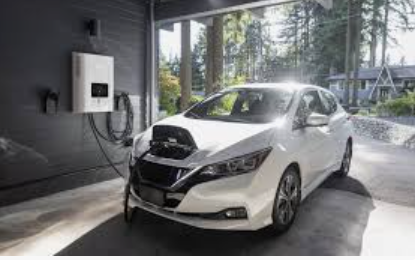The Federal Government has granted approval for the establishment of electric vehicle (EV) factories by Chinese companies in Nigeria, as part of broader efforts to deepen bilateral cooperation and promote industrial growth through the solid minerals sector.
This was disclosed by the Chinese Ambassador to Nigeria, Yu Dunhai, during a courtesy visit to the Minister of Solid Minerals Development, Dr. Dele Alake, in Abuja.
According to a statement released on Sunday by Segun Tomori, Special Assistant on Media to the Minister, the ambassador emphasized the importance of strategic collaboration between Nigeria and China to unlock Nigeria’s solid mineral potential—particularly in the context of clean energy and electric mobility.


Ambassador Dunhai praised Nigeria’s vast natural resources and reiterated that China considers Nigeria a strategic partner in Africa. He also highlighted the outcomes of the recent meeting between Presidents Bola Tinubu and Xi Jinping, where both leaders agreed to elevate bilateral relations to a comprehensive strategic partnership.
“Nigeria is a great country with abundant natural resources. Our two presidents have committed to closer ties, and one of our key areas of cooperation is in industrialisation through initiatives such as electric vehicle production,” said Dunhai.
In his remarks, Dr. Alake stated that Nigeria is now open for business—especially to investors ready to commit to full value-chain development in the mining and manufacturing sectors. He stressed the government’s priority on local processing and value addition, especially in critical minerals like lithium.


“For too long, our minerals have been exported in raw form to fuel industrial growth in other countries. That must change,” Alake said.
“With the abundance of lithium, we want to see the local manufacturing of electric vehicles and batteries. Nigeria has the market, the resources, and the political will to support this transition.”
The ambassador welcomed the policy shift and expressed China’s support for Nigeria’s value-addition agenda. He revealed that plans are already underway to set up electric vehicle factories and other manufacturing hubs in Nigeria.
“Chinese companies are actively involved in Nigeria’s mining—from exploration to processing. We now seek to deepen our engagement by establishing EV factories in line with President Tinubu’s focus on economic diversification,” he stated.

Dunhai also stressed that the Chinese government has consistently urged its companies in Nigeria to operate responsibly, comply with local regulations, and engage in corporate social responsibility (CSR). He emphasized China’s zero tolerance for illegal mining, and expressed readiness to collaborate with Nigerian authorities to prosecute offenders.
In response, Dr. Alake acknowledged the strong relationship between both nations and the positive role of many Chinese firms operating legally in Nigeria. However, he voiced concerns about the negative actions of a few bad actors.
“We’ve witnessed recent incidents, including a viral video of a Chinese national allegedly bribing local security operatives. While isolated, such acts tarnish the image of law-abiding Chinese investors. We appreciate your cooperation in ensuring that such individuals are held accountable,” Alake said.
The Minister also noted the impact of the newly established Mining Marshals, a specialized unit tasked with curbing illegal mining. He said the initiative has significantly boosted compliance and created a more orderly environment for investment in the solid minerals sector.
The collaboration marks a new phase in Nigeria-China economic relations, focusing on green industrialization, clean energy, and responsible resource management, with electric vehicles playing a central role in that vision.




